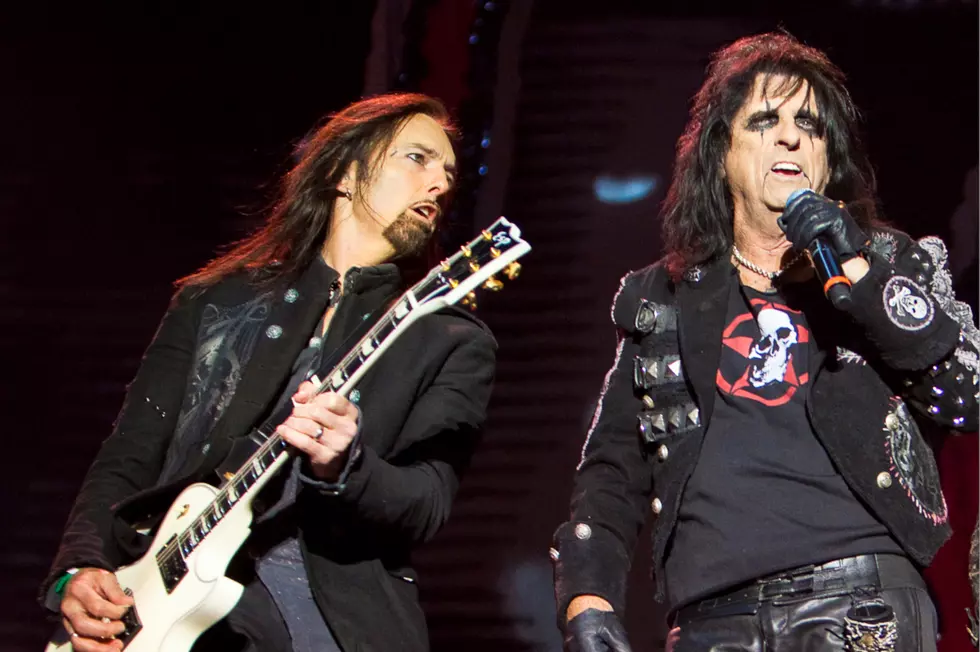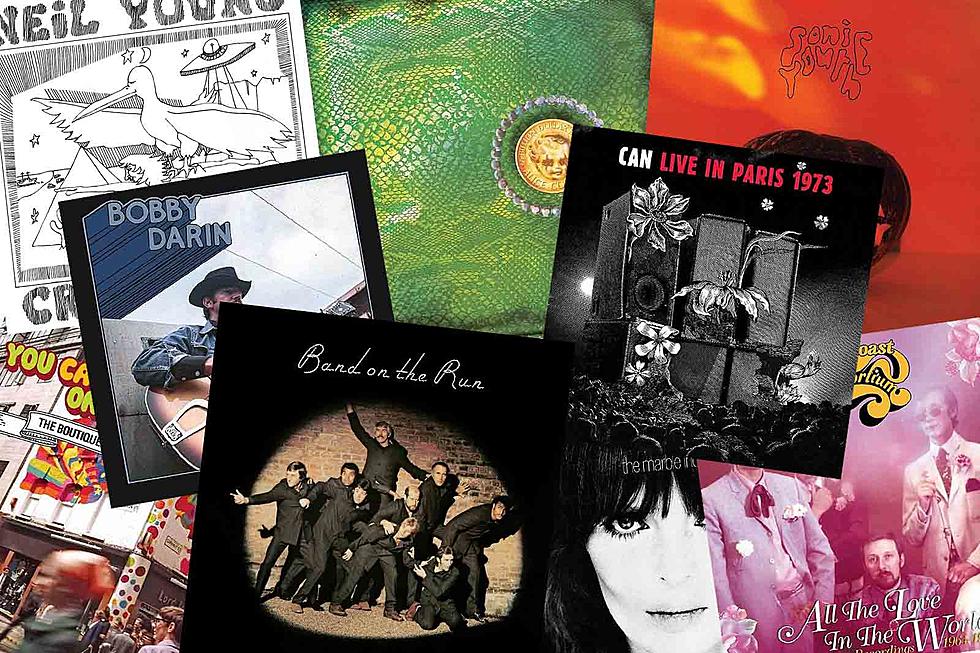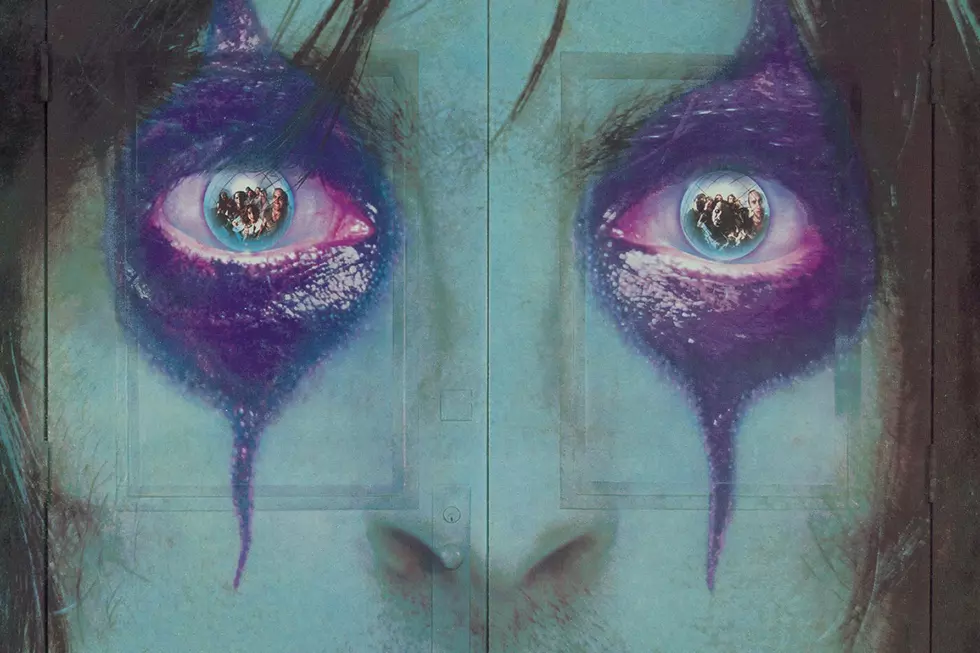
Alice Cooper Captures Life’s Best Three Minutes in ‘School’s Out’
The Alice Cooper band knew what it wanted to achieve when it set out to write “School’s Out.” They aimed to create a piece almost dripping with tension and anticipation, and finishing in an explosive release of raw animal energy.
Frontman Cooper later said the song – which gave the band's 1972 fifth album its title – was his answer to the question, “What's the greatest three minutes of your life?” “There’s two times during the year," he told Mojo. "One is Christmas morning, when you’re just getting ready to open the presents. The greed factor is right there. The next one is the last three minutes of the last day of school. … You're sitting there, and it's like a slow fuse burning. I said, ‘If we can catch that three minutes in a song, it's going to be so big.'"
The shock-rock icon remembered the phrase “school’s out” from the Bowery Boys movies from the '40s and '50s. In the films, a group of streetwise New York kids would use the words when one of them did something stupid, suggesting it was time to demonstrate more smarts. Cooper decided to focus on the more literal meaning, including the street rhyme “no more pencils, no more books, no more teachers’ dirty looks,” but tied the Bowery Boys’ meaning in with the line “School’s out forever” – meaning “time to grow up” – and “school’s blown to pieces,” meaning “no going back.”
The imagery also hooked in the age-old theme of young people’s desire to rebel against older folks, while the parents remained in a perpetual state of suspicion over what the kids may be up to in the shadows, and the kids perfectly happy with the setup, because old people could never remember or understand being that young.
Producer Bob Ezrin maximized that message by having children sing along during the chorus' “no more pencils” section and cheering with unbridled excitement at the end of the song, when the school bell rings and the pent-up energy is finally released.
In 2017, Ezrin recalled telling the band, “That’s so kid-like. We should have little kids singing on it.’” Saying he secured “a bunch of stage brats” from Central Casting, he remembered "into the Record Plant comes five sets of prima donna brat kids with their stage parents, and I have to explain to the parents why it’s okay for this group of kids to sing with this group of completely twisted individuals. They walked into the hallway, saw this group and they were ready to turn around, get back in their taxis and go home! The kids were scared to death, but I got them all to relax, and we all had a really good time. By the end of it, the kids were all giggling and laughing, and they loved Alice. It ended up being very effective, and I think one of the best moments in rock history is when those kids sing on that record.”
Cooper recalled listening back to what the producer had done and thinking, “If that’s not a hit, I need to be selling shoes somewhere.” Ezrin went on to reuse the kids-choir idea with Pink Floyd, helping make “Another Brick in the Wall (Part II)” the band’s only No.1 single in 1980.
Back in 1972, Cooper’s bandmates provided the perfect musical backdrop to the ticking-time-bomb motif of “School’s Out.” It was all based on lead guitarist Glenn Buxton’s playful riff, which also carried a concealed blade. (“Out of that one guitar riff we crafted an entire song in the rehearsal studio,” Ezrin said in 2014.) Bassist Dennis Dunaway and drummer Neal Smith provided a staccato knife-edge rhythm, complete with an overhanging beat at the end of each phrase that allowed no relief from the tension. Buxton supported the raspy, aggressive lead vocals, alternatively lashing out as if smashing bottles in an alley and then gripping a single tone like the collar of a rival gang member who’s about to pay his debt.
Both Cooper and Dunaway later said Buxton’s guitar work summed up his own character. “He was this street punk,” the frontman said in 2015. “The guitar … had a very bratty sound to it. And that’s what I figured Alice should be. The brat who stands up and says, ‘School’s out!’” Dunaway added that the notes carried a “kid-in-the-back-of-the-class feel. ... That was him. That was his personality. It set the feel of the song.”
“School’s Out” was released in April 1972 and spent 14 weeks on the chart, peaking at No.7 when school really was out for the summer. It remains the highest-charting single for both the band and Cooper as a solo artist.
The song has become a mainstay in popular culture, having appeared in movies including Scream, Dazed and Confused and Rock ’n’ Roll High School, and TV shows like The Simpsons, Glee, American Idol and The Muppet Show. It’s also been used in TV commercials, and would have been part of 1992’s landmark Wayne’s World movie too, but Cooper’s manager, Shep Gordon, insisted on using the new track “Feed My Frankenstein" instead.
In 2015, Cooper reflected that one of the best choices he made in writing the song was to make sure the lyrics weren’t too specific, so that everyone who heard it could feel as it if was about his or her own school.
“I think even the parents that didn’t like Alice Cooper kind of went, ‘Jeez, when I was in school, that would’ve been my favorite song too,’” he said. “It’s just such a universal statement.”
Alice Cooper Albums Ranked
More From Ultimate Classic Rock









